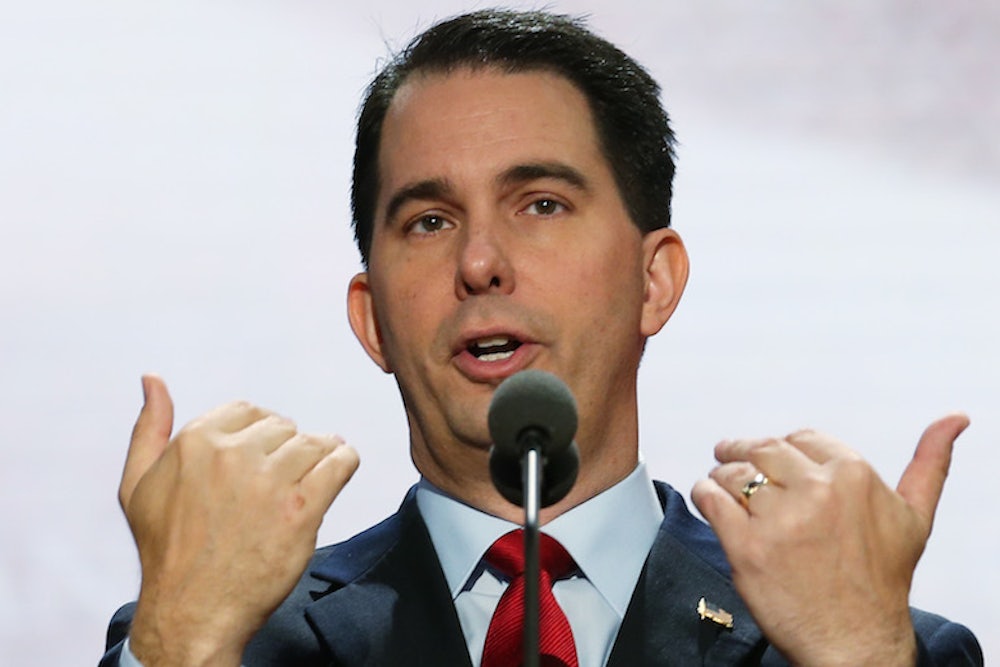Scott Walker is one of the few GOP figures in a position to benefit from Chris Christie’s Bridgegate scandal. The Wisconsin governor is uniquely appealing as a potential presidential candidate to both the moderates in his party and its far-right members. Walker is also the first governor in United States history to win a recall election, so if he wins reelection this year, he will have won three times in five years.
But Walker’s prospects aren’t totally rosy. Charles P. Pierce at Esquire has a good rundown of the lurking scandals: Aides from Walker’s first campaign went to jail for using his Milwaukee County Executive office to campaign for him for governor, another former aide was convicted of stealing money from a fund for families of U.S. soldiers who fought in Iraq and Afghanistan, and Walker’s administration gave raises that skirted state limits after a series of phantom job transfers took place. Another corruption probe is ongoing.
For now, however, the myriad of corruption charges against his administration are being largely ignored by both the right-wing sites that love the Wisconsin governor and the mainstream media. Why hasn’t Walker’s questionable past been addressed in much of the national coverage he has received?
I put the question to Dr. Amelia Arsenault, Assistant Professor of Communication at Georgia State University and author of the article “Scandal Politics in the New Media Environment.” Arsenault told me that in cases like these, there are multiple explanations that often interact. For one thing, there’s what she calls “pack journalism”—a kind of domino effect in media coverage. “If CNN is covering it, or if The New York Times is covering it, then they all pile on, and it becomes this cycle,” she said. “Some scandals are just sexier than others, and Christie is a huge personality. He has more charisma than Scott Walker in a lot of ways in terms of being a media personality.”
Apart from the personality factor, there’s also a more deliberate element at play. Lesser known right-wing news sites often serve as the springboard for determining which scandals will enter the mainstream, according to Arsenault. “Even though they don’t have high readership, sites like The Blaze and Breitbart.com really glom onto a particular scandal, and they’re very good at activating particular scandals and then pushing them forward, so they have to be covered by [outlets] like Fox News,” says Arsenault. “People on either side of the political spectrum are going after Christie, whereas Scott Walker has sort of been the darling of the online scandalmongers.”
Then there’s the matter of various incentives on either side of the political spectrum: Far-right conservatives don’t want a pro-gun control Northeasterner as their leading presidential hopeful; Democrats are similarly eager to discredit a compelling GOP candidate, and it may work in their favor for now to ignore Walker’s skeletons in order to keep the focus on Christie.
Should Walker decide to run, however, opposition researchers would have plenty to work with. What does it say about the GOP that their next-best potential contender has scandal aplenty of his own?
This article has been updated. A previous version of the article mis-identified "pack journalism" as "impact journalism." We regret the error.
